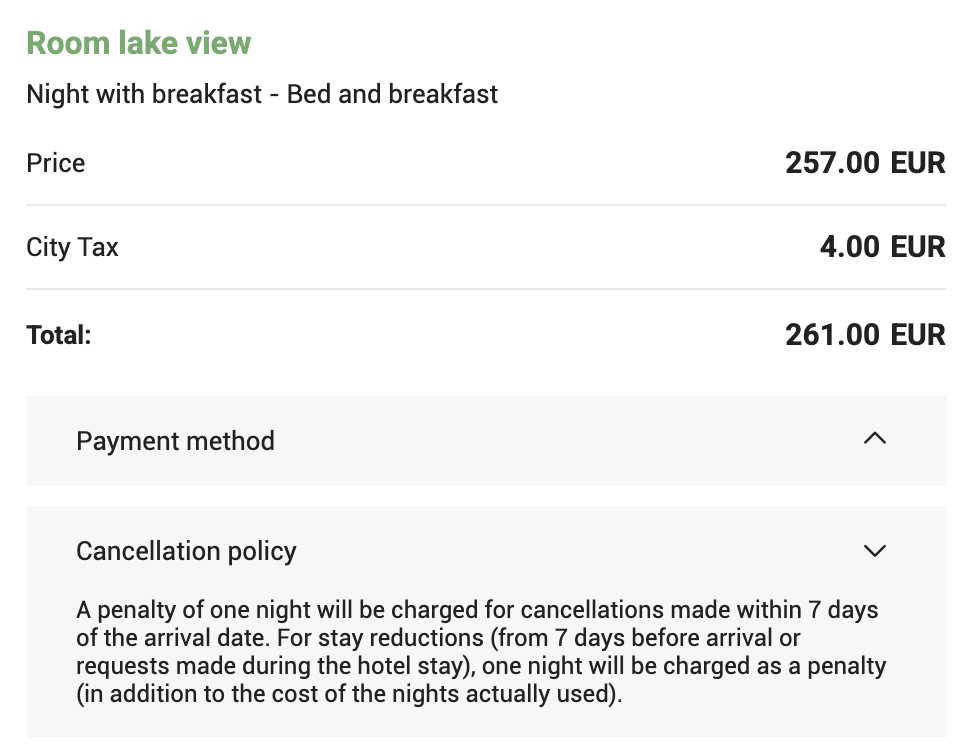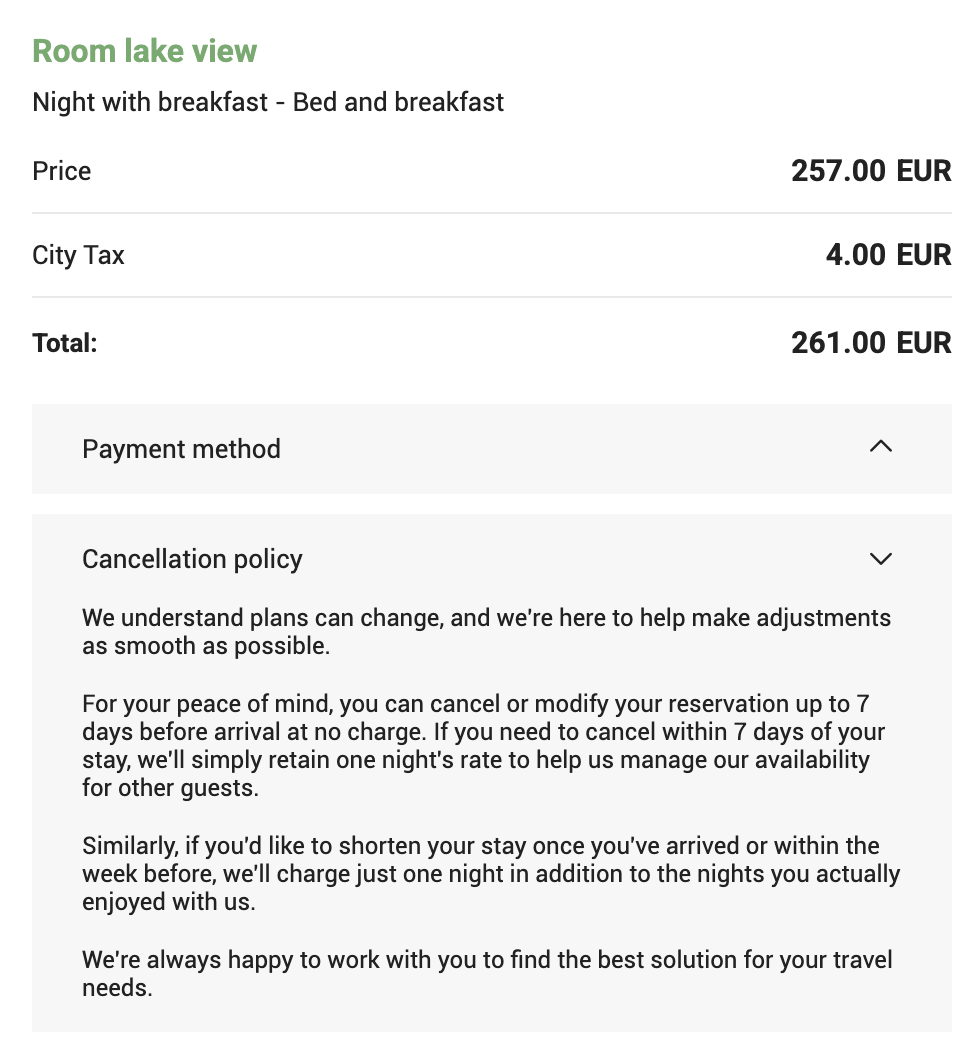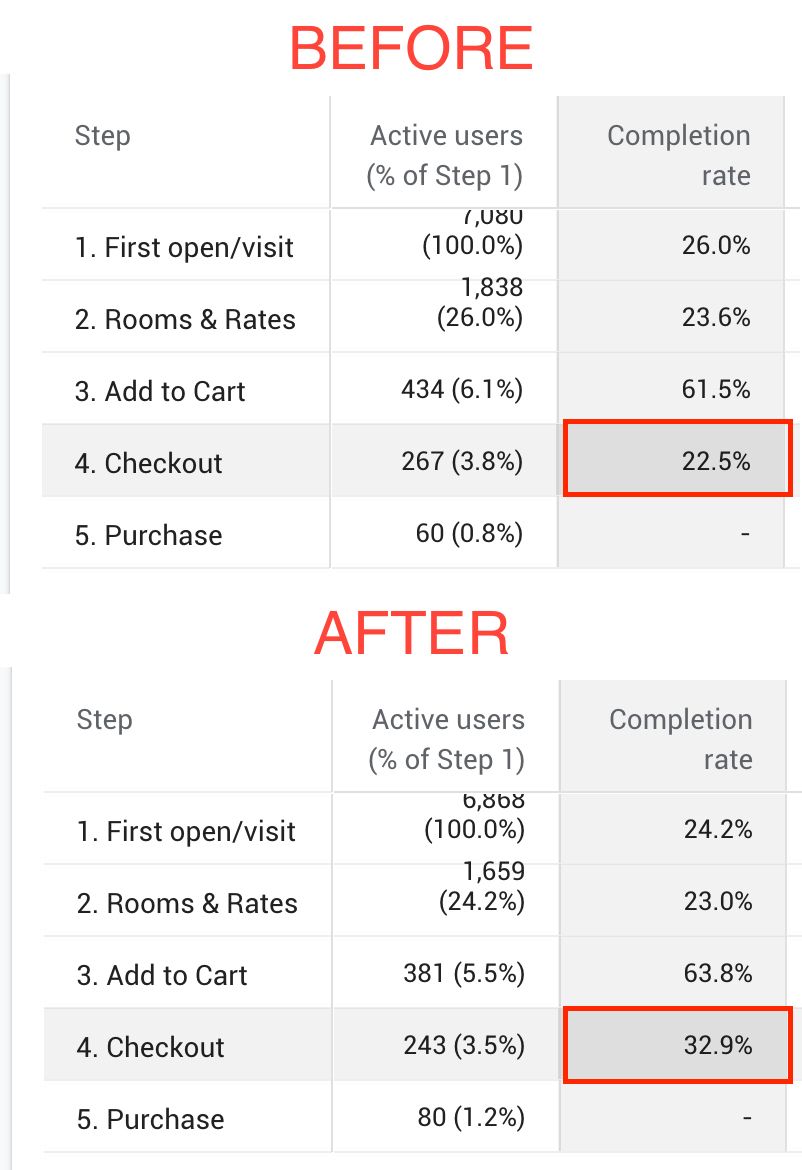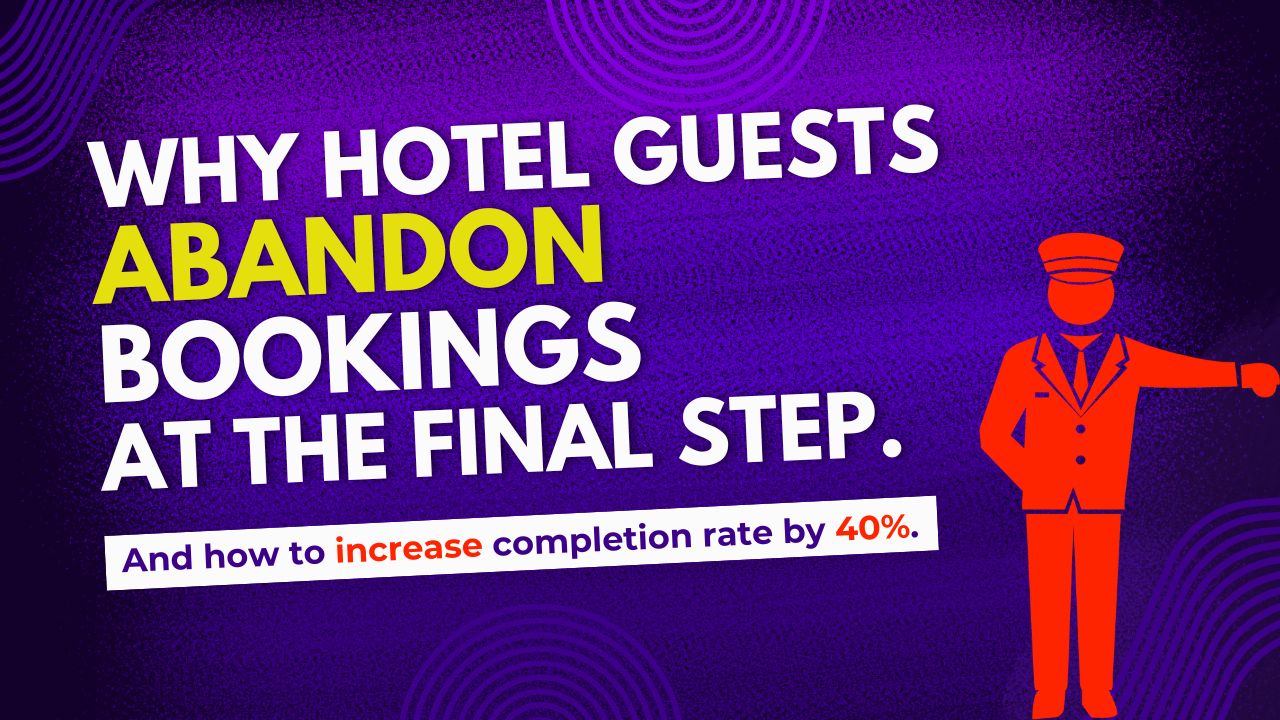Why hotel guests abandon bookings at the final step. And how to increase completion rate by 40%.
The scenario is more common than you think.
Guest finds your hotel, loves the photos, checks availability, selects dates, chooses room type.
Ready to enter credit card details.
Then, problem: cancellation policy hits. Not the cancellation policy itself, but HOW it is written.
Often scaring, intimidating, focusing on charges. But there’s a better way.
Scenario 1:
“A penalty of one night will be charged for cancellations made within 7 days of the arrival date. For stay reductions (from 7 days before arrival or requests made during the hotel stay), one night will be charged as a penalty (in addition to the cost of the nights actually used).”

Scenario 2:
“We understand plans can change, and we’re here to help make adjustments as smooth as possible.
For your peace of mind, you can cancel or modify your reservation up to 7 days before arrival at no charge. If you need to cancel within 7 days of your stay, we’ll simply retain one night’s rate to help us manage our availability for other guests. Similarly, if you’d like to shorten your stay once you’ve arrived or within the week before, we’ll charge just one night in addition to the nights you actually enjoyed with us.
We’re always happy to work with you to find the best solution for your travel needs.”

Same policy.
Different perception.
Different booking completion rates.
It’s longer… so what’s the matter?
Language shapes decisions, especially at the moment of commitment.
Version 1 feels punitive and threatening.
Version 2 feels flexible and understanding.
Tested on a few accounts I follow, completion rate in the guest-details booking step spiked between 35% and 45%.

Here’s an AI prompt that you could use yourself:
“You are a professional copywriter with expertise in hospitality and customer experience. Rewrite the following hotel cancellation policy to sound more empathetic, guest-friendly, and focused on flexibility and peace of mind. Use warm and reassuring language. The tone should avoid harsh or legalistic phrasing and instead emphasize benefits, flexibility, and understanding.
Keep the length close to the original — a slightly longer version is acceptable, but avoid turning it into a long paragraph. The new version will be used on a hotel booking engine, so clarity and brevity are essential.
Original policy:
<paste your current cancellation policy text>
Your output should be clear, concise, and professionally written in native-level English, suitable for use on a hotel booking engine.”
Which version would make you more likely to complete the booking?



